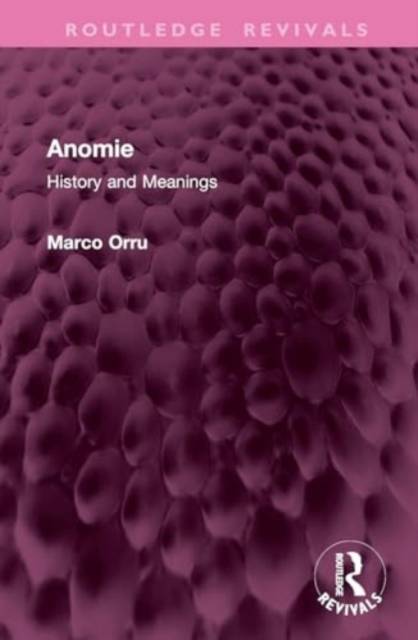
- Retrait gratuit dans votre magasin Club
- 7.000.000 titres dans notre catalogue
- Payer en toute sécurité
- Toujours un magasin près de chez vous
- Retrait gratuit dans votre magasin Club
- 7.000.000 titres dans notre catalogue
- Payer en toute sécurité
- Toujours un magasin près de chez vous
Description
First published in 1987, Anomie examines essential moments of Western thought, tracing the complex concept of anomie. The Greek origin of the term (a-nomia, absence of joy) relates it to the notions of disorder, inequity and anarchy. 20th century sociology has long called into question an over simple dichotomy between law and the absence of law. The book shows that this questioning is not new. It has its roots in Ancient Greek thought and in the founding texts of the Judeo-Christian tradition. It appears in the legal and religious states of the English Renaissance, and in the emerging sociology of 19th century French, where Orrù opposes the collectivism of Durkheim to the individualism of Jean-Marie Guyau. The latter's thought, little recognized at that time, finds an echo in contemporary sociology, notably in American sociologist R. K. Merton. To write the history of the concept, to account for the fluctuations in meaning that it undergoes in the changing prism of diverse societies, to uncover the subterranean continuities between yesterday and today: this is the aim of the book. This book will be of interest to students of history, sociology, literature and philosophy.
Spécifications
Parties prenantes
- Auteur(s) :
- Editeur:
Contenu
- Nombre de pages :
- 222
- Langue:
- Anglais
- Collection :
Caractéristiques
- EAN:
- 9781032765808
- Date de parution :
- 01-05-24
- Format:
- Livre relié
- Format numérique:
- Genaaid
- Dimensions :
- 156 mm x 233 mm
- Poids :
- 570 g







